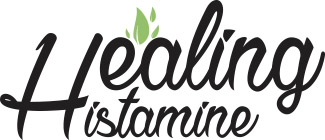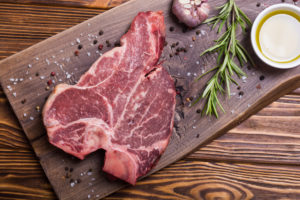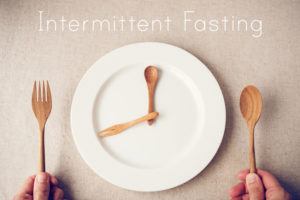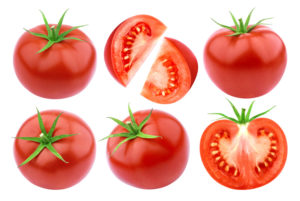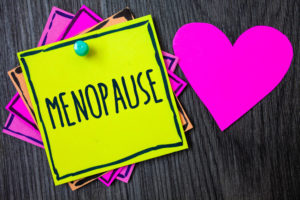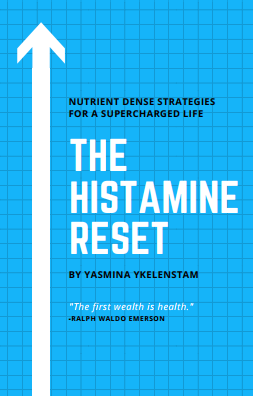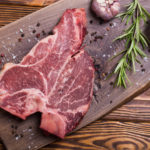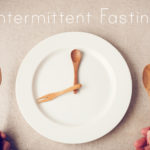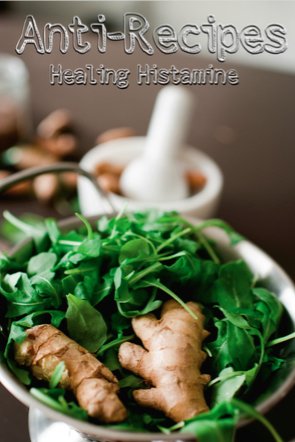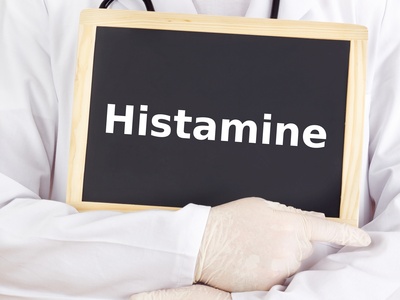
In the second part of our interview Dr Janice Joneja explains:
– How antihistamines are driving up your histamine level
– Which hidden food additives are torpedoing your recovery
– Why you shouldn’t worry about going too low histamine
– The biggest danger you’ll face on the low histamine diet
– Her approach to salicylate intolerance
– Brain fog
– How excess histamine is causing anxiety disorders
– Why histamine makes you crazy!
– The five most important steps in histamine intolerance recovery
You’ll find part one of the interview here.
Here’s the full interview transcript:
Dr Janice Joneja histamine intolerance interview part 2
Dr Joneja, I personally don’y take antihistamines because I found that they made things worse for me. Could you please share with us your opinion on antihistamines and their proper usage?
Some people, especially those who have the so-called idiopathic urticaria, angioedema – where we know we’re dealing with excess histamine – they’re usually prescribed by their physicians to take antihistamines. Now, antihistamines may help during crisis situations where you have excess histamine released rapidly in an allergic response. However, if they are taken prophylactically to try to reduce the effects of histamine on a chronic basis, the reverse situation can happen. Let’s look at antihistamines – how do they work? What they do is they block the receptor on cells that normally histamine would couple to. So in order for histamine to do its work it has to couple with the receptor on a cell and turn on the process. Now, an antihistamine is a mimic of histamine. It couples to that receptor and thereby blocks histamine and doesn’t allow histamine to get to that cell and turn on that process. However, it does not reduce the production of histamine – there is just as much histamine being produced. So it doesn’t stop the production of histamine, it just stops thew histamine from getting to the cell. Over time, the body is going to recognise that it is making histamine, but it is not doing its job. Which is information or allergy symptoms or whatever it might be – but it is protection. So histamine is not doing its job. Uh-oh, I better make more histamine.. We have a rebound effect. And so if antihistamines are taken regularly or even prophylactically, we going to end up with the situation where the body makes even more [histamine], because the body senses that it is not making enough.
So we have to be very, very careful about using antihistamines – they may be what we might say is a rescue remedy for an acute reaction, but only occasionally and only as needed, because otherwise we are going to have this rebound effect where the body is saying “okay – better make more [histamine]”. And that is what happens. I would be very, very cautious about that.
Absolutely. My actual healing began when I quit antihistamines. I went through a rough patch for a while but then I definitely felt much, much better.. That’s very good to know.
You are exemplifying exactly what my research has indicated, that you have to be absolutely cognisant of the process that you are dealing with and the processes that you are trying to intervene in, because you can intervene and make things a heck of a lot worse if you don’t understand the process. That, unfortunately, is what a lot of the information on the web is doing. Which is potentially making things worse, as a result of not understanding the process. The process is so important. And on that topic which I didn’t address when we were going through the foods to avoid – are the important additives that are going to release histamine on their own. So they’re the ones that one has to understand the process in order to know why to avoid them. For example, sulphites, benzoates, and tartrazine (a food dye, a synthesized dye). These are the ones we know, from the sparse research that we do have, that they can release histamine. And so these are the ones that we have to be careful about as well, because we do have this effect – that may be a rebound effect as well because of the way that these additives interact in the body.

Do natural antihistamines such as quercetin, rutin and luteolin and other bioflavinoids also cause a rebound effect?
I honestly can’t answer that question because I don’t know of any research which is specifically showing us the process. Now, I need to know the process in order to answer the question because if in any way it actually interferes with the histamine balance in the body, if it basically influences how much histamine is being produced, we have to be careful because as the body senses that there is insufficient [histamine] for protection – it will up the levels. One has to be careful about that. I’m never a very big supporter of additives or supplements if I don’t know how they function. Because otherwise we may be making things worse rather than improving. So although bioflavinoids are theoretically going to be very beneficial, there is still a body of research that indicates that even antioxidants and so on and so forth, can have a negative effect if we are dealing with a rebound response in the body. There’s a paper on that very topic where supplements may in fact be very detrimental as a result of this interfering with a natural process in any excessive way that interferes with the balance – and that I’m always very cautious about.
Is there any danger or any possibility of going too low-histamine diet-wise?
No, no – no, because we don’t depend on excess histamine whatsoever. That does not in any way interfere or in most cases supplement the natural histamine in our bodies. We need the histamine and the body makes adequate amounts for what it needs to function, and does not depend on extra histamine coming from outside. No, no – that wouldn’t be a problem. The only danger would, of course, be if the foods are restricted and not substituted or supplemented with those of an equivalent nutritional value. That’s the danger – the lack of nutrients. That’s the big danger.
Something that Dr Fuhrman told me, I don’t know if you’re familiar with him – he’s a doctor in the United States who promotes what he calls a “nutritarian” lifestyle, using high nutrient foods to help our bodies heal naturally – he told me that he treats people through primarily through diet for histamine issues, to try and rebuild the body nutritionally (a lot of which sounds very similar to your approach). People with salicylate intiolerance (to go off topic just for a second) often tell me they are worried that they won’t be able to recover because they have to eliminate so many of the foods that are highly nutritious. Is there a work around for them? Should they continue to attempt to reintroduce foods under the supervision of someone such as yourself?
What one needs to do is to make sure that all natural nutrients are available as much as possible in the diet. And in order to make this very simple for my patients – and some of them just want to have a nice, simple way of approaching this – I do this with a lot of my diets that are eliminating specific foods as a result of allergy, intolerance, whatever it might be. I break it down into three major categories: protein, grain and starch and fruit and vegetables. Three simple categories. I give them a list of all the protein foods, all the grain and starch foods and all the fruit and vegetable foods that are allowed on their particular restricted diet. And then I instruct them that they must have at least one, if not more, from each category at each meal and every snack. And then I work out a meal plan for them based on all the foods that are allowed on their particular restricted diet. And this works very, very effectively – the people are usually very busy people who don’t want a lot of fuss with individual foods and individual supplements, individual vitamins and minerals, whatever it might be. I could be much more specific because I’ve also got charts that show all the micronutrients as well – but all a person really needs is to make sure that they are getting at least one food from each category at each meal and snack from their allowed foods: it works beautifully in making sure they are getting all the nutrients they require. And really – bottom line: that’s all they really need.
Brilliant! I’m definitely going to sign up for a consult!
I don’t think you need it! I think you’re doing extremely well on your own! I applaud what you’ve done – I think it’s remarkable. You must have done an enormous amount of research.
🙂
Something many of us suffer from is brain-fog. How do you explain it and do you have any tips for dealing with it?
The most important thing about histamine is that it’s a neurotransmitter, so if you’re upsetting your balance of histamine then you’re upsetting your brain function, bottom line, you can’t avoid it. In fact, I have people – quite dramatically – who lose consciousness, for a couple of seconds, not any great deficit, but definitely get very light-headed, brain fog all the time, feeling fatigue – fatigue is a big one, very much so. And this is all to do with the fact that histamine is a neurotransmitter – so if you upset the balance there, you’re into the central nervous system functions, definitely, it’s a big factor and the other thing that I’ve found is very important in histamine are panic attacks. I did not recognise this as a symptom until in my practice I’d had three, four maybe five people in a row who came to me because of allergies, we found they were histamine intolerant – I’d got a full medical history as applied to their allergies, and their symptoms of allergies, sent to me by their physicians and so on – and put them on a low histamine diet and they came back and said “my panic attacks have gone away”. I said, “What? You didn’t even tell me you had panic attacks!” And so I looked into this and it is very, very clear what happens. Histamine has many functions in the body. One of the functions it performs is that it is a vasodilator, which means it widens blood vessels. With the widening of the blood vessel, what happens then is that there is less resistance to the heart pumping blood through the body – it’s like widening a hose and you get less resistance to the water as it’s pumped through, so the heart speeds up in order to get the same volume of blood through these widened channels. So you get a tachycardia, but first of all you get a drop in blood pressure, so that’s first in the histamine response, a drop in blood pressure, increase in heart rate, and then as the blood courses through the body, you get flushing and a rise in body heat and so on and so forth, reddening, and, of course, this triggers that panic attack feeling in a person and I’ve had people go to the emergency room thinking they are having an anaphylactic reaction, thinking they’re having a heart attack – all sorts of things. And actually, it’s excess histamine because of the widening of the blood vessels and the increase in the heart rate – and on a low histamine diet, the panic attacks have gone away.
So I approached psychologists or psychiatrists (whoever was interested) and said “would you please do a research study with me on this?” And, well, it didn’t happen because of funding – and , oh dear, it never happens! But I just say to people if they’re feeling high anxiety – “yes, that’s what’s happening, because your blood vessels widen, your blood pressure drops and your get tachycardia and – yup, you’re into what appears to be a full-blown panic attack.”
Absolutely, I was prescribed multiple medications over decade for “generalised anxiety disorder” that didn’t exist..
Right, that’s it, that’s it– the anxiety disorder. It’s the way that histamine excess affects the whole body system. Not just because of it being a neurotransmitter but because of it being a vasodilator.
I’ve noticed at times that when I’m feeling quite high histamine the veins in my hand pop out and enlarge..
Oh, yes. Yes, indeed. The capillaries widen and what happens – this is particularly true of hives, urticaria and angioedema, is that the blood vessels not only widen but they become more permeable. So fluid builds from inside the blood vessels and causes swelling. So you get the swelling, and the reddening that’s due to the fluid moving in and excess blood getting to the site. The other symptom of excess histamine is itching. People have itching all over the place because this is another factor that histamine always does, and that’s itching. You can have hives, they’re a little swollen, there’s reddening, there’s itching – it’s all histamine.
A study actually came out a few days ago that I found very interesting. It was regarding a researchers in Finland having success in treating people with schizophrenia with high doses of H2-blockers, histamine receptor 2 blockers. I found it very interesting so I posted just the list of symptoms from that article: irritable or tense feeling, trouble concentrating, trouble sleeping.. as the illness continues the person may have problems thinking, emotions and behaviour including: isolation, reduced emotion, problems paying attention, strongly held beliefs that are not real, thoughts that jump between topic, hearing or seeing things that aren’t there.. And I posted these symptoms in various groups that I’m a member of, and I was quite surprised that I’m not the only person who has had all of those symptoms when in the midst of a high histamine attack..
Yes, yes – that’s right, my patients do report all of those.
It’s good to know we’re not alone!
It may be that histamine excess is a part of a lot of different conditions that we have not yet recognised. And that by reducing histamine from extrinsic sources, at least to the level that we can, we may be reducing the severity if not the trigger of the symptoms in conditions that we have not yet recognised [histamine to be a part of]. I’m quite convinced that is going to happen.
What do consider to be the five most important steps in the histamine intolerance recovery process?
Recovery. Now, the situation is that if a person is histamine intolerant as a result of diamine oxidase deficiency, their recovery is going to be limited to controlling the level of histamine that their bodies have to cope with. We know that they are going to require a certain level of histamine for health – they’ve got to have it for brain function, digestive function and protection, so that’s a given – they’ve got to have histamine. What they have to do is come to terms with the fact that because they have a threshold of tolerance that is below what (in terms of quotations) would be considered normal, they have to live within their own limits. That means, first of all, recognising that they do have this problem and that is difficult at the moment because there isn’t a definitive diagnosis for them that they can go with a piece of paper in their hands and say “this is my test result, and therefore I know I have low diamine oxidase and high histamine and therefore I am histamine intolerant.” Sorry, we don’t have that at the moment. You’ve got to come to terms with the fact that, yes, this is your problem and if you have to convince people around you that this is your problem then – it’s their ignorance, put it down to that fact that you have work within that environment. Probably from your own position too, depending on where you are situated. So that’s number one – recognising the problem. Number two is coming to terms with the fact that we really don’t have any remedies apart from [people] taking control of their diet and environment. Environment will include reducing their exposure to allergens if they are experiencing allergy and the allergy could be to airborne allergens or it could be to food allergens – these have to be recognised as contributing to the problem and controlled. So, first of all we’ve got recognition; second is looking at triggers; thirdly is to get adequate advice as to a way of coping which will be a diet that is nutritionally complete and avoids all the histamine-releasing and histamine-associated foods and coming to terms with the fact that they have to live within those restrictions. And, of course, making their life as stress-free as possible – so this is another level of quality of life issue, which is to take control of their lifestyle as well as their diet and their environment. So it’s environment, diet and lifestyle. And the fifth one that may or may not help is looking at the possibility that supplementing their own diamine oxidase with a possible supplement – but that has got to be the last one because the others are more important. The diamine oxidase is only going to be a little bit of a help – it’s not going to be their remedy. Those are the five important points in my approach.
The most important thing is that anyone dealing with this condition should be cautious. And by being cautious, I mean do not go to the point of restricting all your foods because you don’t know what to eat. Make sure that you are getting good advice, from someone like yourself, to make sure that they are getting a nutritional repletion from anything that they may have to avoid. I think it’s sort of a lifestyle approach that must be tempered with common sense. Don’t run around the web taking every diet that you see and avoiding everything on every list. Make sure you’re getting good advice, you’re actually avoiding the things that are going to add to the problem, and do not keep running for every supplement that you read may help the situation because in most cases – in many cases – it can make things worse, just as we’ve discussed.
Absolutely. I’m just really excited to have had this conversation with you. It’s been incredible.
I’m so happy to have the opportunity because I feel for so many years that I’ve been this little voice in the wilderness – and, you know, I’m not terribly popular with certain clinicians as a result of them feeling that is “alternative medicine”! And it isn’t! I’m an absolutely traditional scientist – I couldn’t be more traditional! You know, everything has to have evidence-based research – everything I do!
That’s why I love your work!
